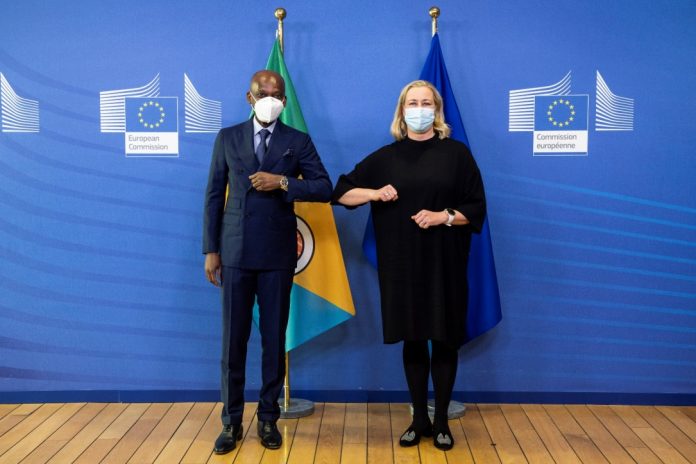By Amin Kef Sesay
After two-and-a-half years of intense negotiations, a successor to the Cotonou Agreement is in sight. On 15 April, European Union (EU) and the Organisation of African Caribbean and Pacific States (OACPS) as chief negotiators concluded the negotiations that will lead to the signing of a new Association Agreement between the 79 members of the Organisation of African, Caribbean and Pacific States and the European Union.
The two are proud of what they have achieved together. According to them the Agreement renews, modernises and deepens the special relationship the African, Caribbean and Pacific States and the European Union have built over more than 40 years. It sets a framework for cooperation in the next twenty years.
It was mentioned that together they represent 1.5 billion people on four continents, 106 countries, and more than half of the seats at the United Nations’ General Assembly. “We share common values, but also a common vision: peaceful and prosperous societies that leave no one behind,” it was stated.
In a troubled world, grappling with an unprecedented environmental crisis, a devastating pandemic, and a revival of the unilateralist temptation, the relationship between the two groups of countries represents a pillar of stability and a beacon of hope. They choose to work together.
The new Agreement takes their partnership to the next level. It is more ambitious, comprehensive and flexible than its predecessors, be it in terms of jobs, global challenges, rights, multilateralism and differentiation. It really goes beyond the Cotonou Agreement, in various fields.
From geopolitical perspective, they will together be stronger globally and strive to implement the United Nations 2030 Agenda and the Paris Agreement, the overarching frameworks guiding their partnership.
From a partnership point of view, the first time in over forty years of collaboration, strong regional components are included in the text. This strengthens the EU’s relations with each region through three tailor-made regional Protocols with specific priorities.
In substance, the agreement puts human rights, gender equality, democracy and good governance at the core of the partnership. They will have special focus on human development, fostering economic opportunities for all, and preserving the environment.
The result of the negotiations is a testimony to the vitality of their relationship. It is a true turning point, a major political achievement, and a powerful tool to advance the UN’s Sustainable Development Goals.
According to the EU their young people demand a fairer, greener and more peaceful world. The future generation deserves a global rules-based order that regulates power politics, protects the vulnerable and promotes open societies while leaving no one behind. It was said that their new agreement works towards that.




